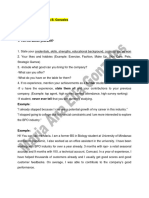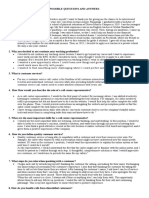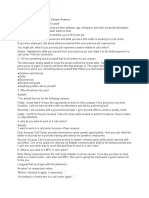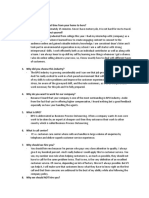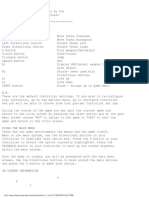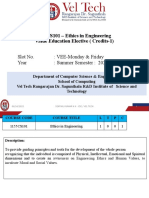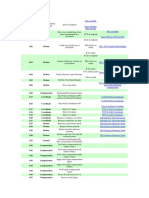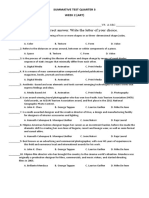0% found this document useful (0 votes)
27 views13 pagesCSA Interview Prep Kit
The 'Customer Service Associate Interview Prep Kit (2025 Edition)' by Moksh Dhingra provides essential information for preparing for a CSA interview, including an overview of the CSA role, top interview questions with sample answers, and key do's and don'ts during the interview. It emphasizes the importance of communication skills, empathy, and professionalism, along with practical tips for handling customer interactions. The kit also includes a checklist and bonus tips to help candidates leave a positive impression on recruiters.
Uploaded by
mokshCopyright
© © All Rights Reserved
We take content rights seriously. If you suspect this is your content, claim it here.
Available Formats
Download as PDF, TXT or read online on Scribd
0% found this document useful (0 votes)
27 views13 pagesCSA Interview Prep Kit
The 'Customer Service Associate Interview Prep Kit (2025 Edition)' by Moksh Dhingra provides essential information for preparing for a CSA interview, including an overview of the CSA role, top interview questions with sample answers, and key do's and don'ts during the interview. It emphasizes the importance of communication skills, empathy, and professionalism, along with practical tips for handling customer interactions. The kit also includes a checklist and bonus tips to help candidates leave a positive impression on recruiters.
Uploaded by
mokshCopyright
© © All Rights Reserved
We take content rights seriously. If you suspect this is your content, claim it here.
Available Formats
Download as PDF, TXT or read online on Scribd
/ 13
